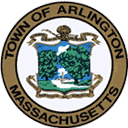
Town of Arlington
Arlington Public Schools
Dr. Kathleen Bodie, Superintendent
869 Massachusetts Avenue
Arlington, MA 02474
Department of Health and Human Services
Christine Bongiorno, Director
27 Maple St.
Arlington, MA 02476
For Immediate Release
Monday, Dec. 18, 2017
Media Contact: John Guilfoil
Phone: 617-993-0003
Email: john@jgpr.net
Arlington Takes Precautions after MRSA Infection at High School
ARLINGTON — Arlington Public Schools Superintendent Dr. Kathleen Bodie and Health and Human Services Director Christine Bongiorno announce that precautions are being taken after a case of a Methicillin-resistant Staphylococcus aureus (MRSA) was reported at Arlington High School.
“The close proximity and interactions in locker rooms and sports teams can often spread infections,” said Arlington High School Principal Matthew Janger in a letter home to families. “We have recently had an isolated case of MRSA reported and wanted to alert the community, both for our own precautions and to recommend precautions to parents/families.”
MRSA (staph) typically presents as a skin infection. It is not airborne, but can be spread directly from person-to-person or from object-to-person, such as from an exercise mat. It is most often found in hospitals and athletic facilities. It is spread through contact with broken skin. Simply touching surfaces, including desks, gym mats, etc., does not spread the infection, especially if proper hand washing procedures are followed.
Thankfully, reporting procedures were followed, and a member of a varsity athletic team is being treated. The MRSA case appears to be confined at this time.
The Arlington Public Schools contacted the Arlington Health Department for guidance. While the affected recreational facilities at the schools are regularly cleaned and sanitized, the schools will perform a deep cleaning with bleach solutions and antibacterial cleansers on all facilities and equipment. Affected athletic facilities will be closed until that process is complete, which may take several days. Additionally, antibacterial cleansers will be provided for athletic staff and faculty use.
“Our staff is working closely with the Arlington Public Schools, and we are drawing upon the resources of the Centers for Disease Control and Prevention and the Massachusetts Department of Public Health to ensure that all facilities are disinfected so that this hopefully remains an isolated incident,” Director Bongiorno said.
Frequently Asked Questions
What is MRSA? MRSA is a kind of skin infection. The skin becomes red and may ooze. There may be small bumps clustered together or larger red areas. These areas may have honey-colored crusts or blisters. MRSA spreads quickly and is often itchy.
What causes it? MRSA is caused by a common skin organism (such as staph). These organisms usually cause infection only when the skin gets injured (scraped, cut or scratched).
How is MRSA diagnosed and treated? Your health care provider can tell you if your child has MRSA. Usually it is treated with a combination of a special soap, an antibiotic ointment, and/or possibly an oral antibiotic.
What should you do if your child has MRSA? Keep the rash clean and dry. You may want to cover it lightly so the ooze and crusts cannot be spread to other people. People who touch the rash should wash their hands very well.
Below is guidance from the CDC on precautions for students and families. These include awareness of signs of infection, cleansing of uniforms and equipment in hot water, and personal hygiene.
English
https://www.cdc.gov/mrsa/healthcare/patient/index.html
Spanish
https://www.cdc.gov/mrsa/pdf/SHEA-SPAN_mrsa.pdf
Prevention Strategies
Hand washing, according to the Massachusetts Department of Public Health, is the most important behavior in preventing infectious disease. This is important for all people, including students, athletes, coaches, faculty, and staff in all schools and athletic facilities.
- Never touch your eyes, mouth, or nose before washing your hands.
- Do not share towels, soap, or other personal care items.
- Shower with soap and water as soon as possible after direct contact sports.
- Dry using a clean, dry towel — do not share towels, even on the sidelines at game. ·
- Ointments or antibiotics must not be shared.
- Rewash or rinse items that have been contaminated with body fluids.
- Wash towels, uniforms, scrimmage shirts, and any other laundry in hot water and ordinary detergent and dry on the hottest cycle.
###
Discover more from John Guilfoil Public Relations
Subscribe to get the latest posts sent to your email.